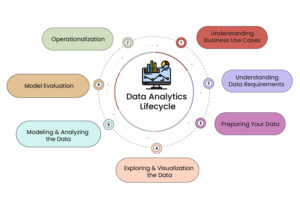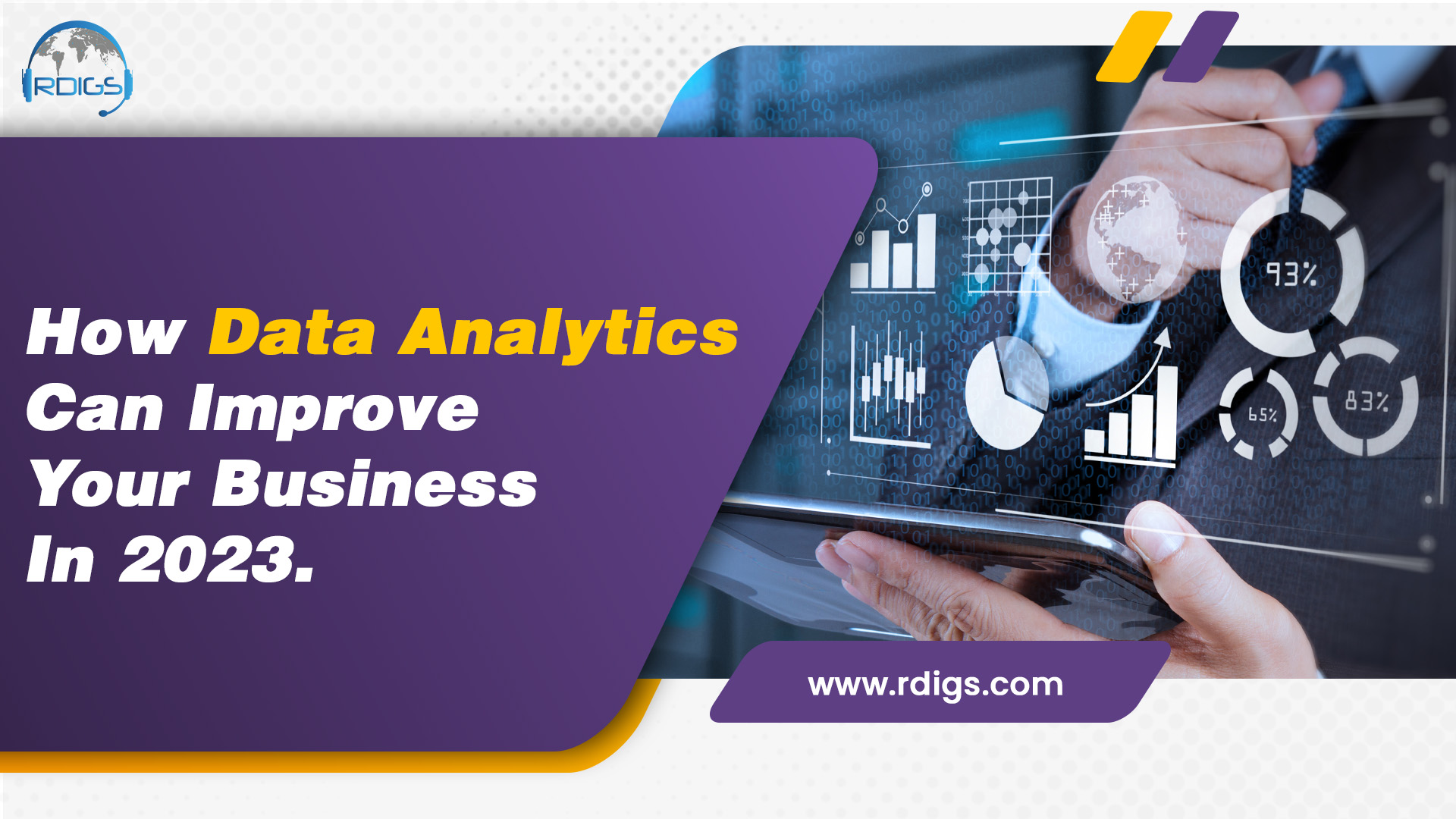Data analytics can improve your business! It is becoming more and more obvious that data analytics will play a bigger role in corporate strategy and in keeping the company stable as it should. According to Gartner, in 2023, more than one-third of large organizations will have data analysts practicing the discipline of decision intelligence, which includes decision modeling.
Many data analytics comes up to be used today incorporate automation, machine learning algorithms, and other capabilities using specialized hardware and software. Businesses also utilize data analytics to help them make decisions. Data scientists and analysts use it to do research. Businesses may build goods, analyze their advertising efforts, customize the content, and establish content strategies using data analysis. Businesses may use data analytics to increase performance and raise their bottom line.
Over the past few decades, more and more businesses have embraced data analytics. According to a recent Bloomberg Businessweek Research Services survey, more than 97% of business respondents claimed their organizations now use data analytics. However, properly implementing data analytics processes capable of shaping and influencing positive business decisions takes time and patience.
Types of Data Analytics
There are four main categories of data analytics.
1.Descriptive Analytics:Describes what has happened during a certain time. Have there been more views? Are sales better this month than they were last month?
2.Diagnostic Analytics: This focuses more on why something happened. This involves more diverse data inputs and a bit of hypothesizing. Did the weather affect beer sales? Did that latest marketing campaign impact sales?
3.Predictive Analytics: This moves to what will likely happen soon. What happened to sales the last time we had a hot summer? How many weather models predict a hot summer this year?
4.Prescriptive Analytics:This suggests an action plan. Suppose the probability of a scorching summer, as determined by the average of these five weather models, is greater than 58%. In that case, we should add an evening shift and rent an additional tank to increase production.
Why Is Data Analytics Important?
Data analytics is essential because it assists businesses in optimizing their operations. Its incorporation into the business model enables companies to reduce expenses by identifying more efficient business practices.
Using data analytics, a company can also make better business decisions and analyze customer trends and satisfaction, leading to the development of new and improved products and services.


Data analytics allows a business to create reports and find patterns to help it operate more efficiently. Analyzing data can also improve decision-making by enabling a company to predict industry trends or what its customers will want next. These predictions help companies stay on the cutting edge and remain competitive. For example, a pizza shop may use analytics to understand the demographics of its customers or how much they spend at the restaurant. This can help them plan promotions and marketing campaigns better.
Data analytics can help understand the different types of customers who visit the store. In the era of big data, where business leaders have access to more information than ever, analyzing this information is an important skill for any professional in a leadership role. Many employers prioritize business analytics training for employees looking to advance.
Who Is Using Data Analytics?
Several industries have adopted data analytics, including the travel and hospitality sector, where turnarounds can be rapid. This industry can collect consumer data to determine where problems exist and how to repair them. Healthcare is another industry integrating large volumes of structured and unstructured data with data analytics to facilitate rapid decision-making. Likewise, the retail industry utilizes copious quantities of data to satisfy the ever-changing needs of consumers.
B2B analytics involves looking at the data you’ve gathered from different campaigns and uncovering insights about your marketing performance. B2B marketing data helps you identify areas to improve your marketing to drive better campaign results.
Data analytics is important because it helps businesses in optimizing their operations. Implementing it into the business model allows companies to reduce expenses by identifying more efficient business practices and storing vast data.
How Data Analytics Help Businesses
As touched upon above, data analytics are used by companies in a variety of different ways that can help improve performance in several key areas. Below are four major ways data analytics can help your business.
1.Informed Decision-Making
We’ve already talked about the most obvious benefit of data analytics: using data to help make and explain important business choices. Most of the time, this is done in two steps. First, based on the data that has been collected, predictive analytics can help make predictions about what might happen in the future. Prescriptive analytics, on the other hand, can tell you how your business should respond to these expected changes.
For example, a business can change its products and the prices it charges for them based on what it learns about its customers. This can directly affect its marketing tactics. E-commerce giant Amazon customizes product choices. It shows marketing materials to returning buyers based on what they have bought before and what is in their virtual shopping box.
2.Improved Efficiency
Many companies use data analytics to make their operations run more smoothly. For example, collecting and studying data about your business’s supply lines showing where delays and bottlenecks come from can help you figure out where problems might happen and how to avoid them best.
For example, if a demand estimate report shows that a certain supplier won’t be able to handle the increased number of orders during a certain holiday season, your business could look for a backup supplier (or a new supplier altogether) to avoid production or delivery delays.
3.Risk Mitigation
Just as analytics can identify and predict inefficiencies, it can also be used to highlight potential risks and implement preventative measures. Retail chain businesses, for instance, can use statistical models based on crime data to determine which stores are at the highest risk of being targeted by shoplifters and increase security in these stores accordingly.
As well as helping decrease physical risk, it is also possible to identify and stop financial risks. This is to say, and data can be used to limit losses by helping to determine when it’s time to get rid of stock the best price to sell clearance sale things for.
4.Enhanced Security
All businesses have to deal with real threats to their data protection in the present day. But using data analytics can be one of the best ways to improve your company’s cybersecurity and stop major threats from hurting your company’s finances or image.
For example, companies can use data analytics to parse, process, and display their audit logs to figure out how and where a cyber-attack happened in the past. This information can then be used to find holes in a business’s safety and offer ways to fix them. Statistical models can also be used to stop threats from happening in the future. You can use them to set up new models that look for and flag strange behaviors. This lets you stop a threat before it becomes a security problem.
Why Is Data Analytics Important In Business?
Data analytics is so important in business today because technology is becoming more and more important to the growth of a business. This means that the part played by data analytics has also grown a lot. Deep data analysis is now much more important for success than just going with your gut.
As we’ve seen, data analytics is so important in business because it helps companies make better decisions based on data and gives them useful information into key business areas like:
- Customer behaviors and trends
- Security and risk mitigation
- Business productivity and efficiency
- Customer personalization.
Even though it may take time and some trial and error to find the types of data analysis and tools that work best for your business, the long-term benefits of using these methods can be huge.

